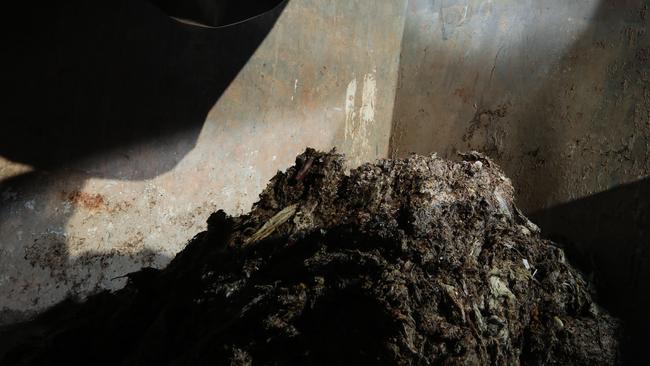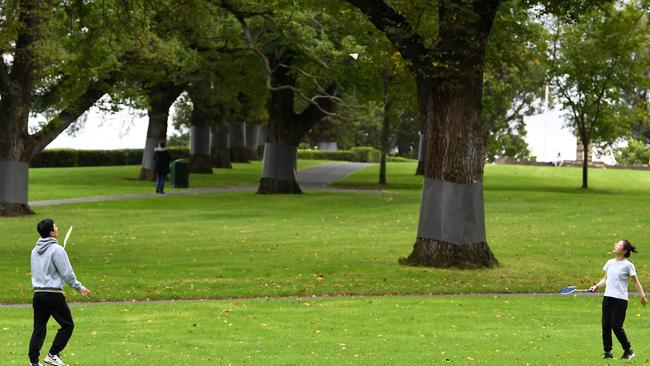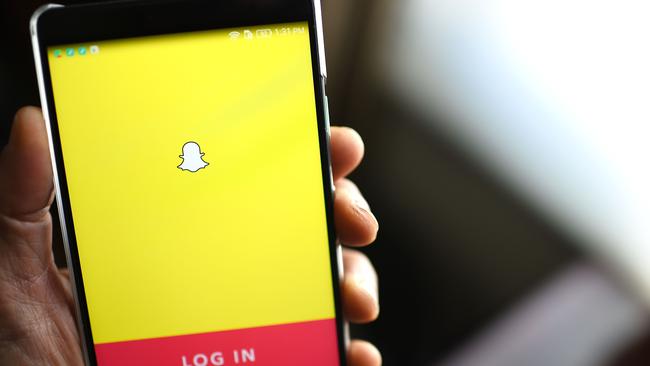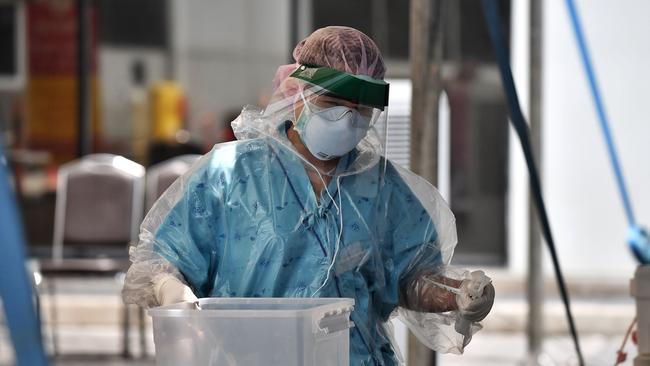Trial to begin on testing your poo to find traces of COVID-19
It is not a job most of us would like but tests will soon begin to see if scientists can discover the presence of coronavirus in your poo.
NSW Coronavirus Hibernation
Don't miss out on the headlines from NSW Coronavirus Hibernation. Followed categories will be added to My News.
- Aussie stars blasted for coronavirus anti-vax push
- SMS same-day test results for 12 new virus hot spots
The nation’s poo and a smartphone app that can trace an infected patient are being heralded as secret weapons in Australia’s war against coronavirus.
NSW Health and Sydney Water are monitoring the trial in the ACT where daily testing is about to start at the country’s largest inland sewerage treatment plant at Lower Molonglo led by researchers at the Australian National University.

MORE NEWS
ScoMo ‘puzzled’ WHO supports China’s wet markets reopening
Old vaccines for other germs being tested against COVID-19
COVID-19 lockdown should stay till end of winter: expert
Studies have shown that COVID-19 can show up in faeces within three days of infection, a week or two before people develop symptoms, and routine testing of sewerage could both monitor the circulation of the virus in the community and be an early warning system for its return, Dr Aparna Lal said yesterday.
“I think it has a lot of potential because for the infection control of COVID-19 to be effective, we have to know how much transmission is occurring,” Dr Lal, who works with infectious diseases at the ANU National Centre for Epidemiology and Population Health, said.
“This is another piece in the puzzle.”

Dr Lal said they would make their results known as soon possible as Icon Water is working with Water Research Australia, the body for the country’s water companies.
“It is an international emergency and we want to share the results with the world,”she said.
Meanwhile a coronavirus contact tracing phone app currently being developed by the federal government is expected to be ready by May, which could dramatically improve how quickly health officials can track people exposed to coronavirus.

The voluntary app - which needs about a 40 per cent uptake to have enough data - can be used by the health department to notify people if they’ve been in contact with a confirmed COVID19 patient for longer than 15 minutes in the 24 hours before symptoms were present.
The Sydney Water plan will mirror testing already common in wastewater for illegal drugs and antibiotic use.
Melbourne immunologist Professor Peter Doherty, who was awarded the Nobel Prize for medicine in 1996 for his work studying the immune system, said the testing could become important as Australia eradicates the virus by closing borders.

“You are testing much larger numbers of people,” Professor Doherty said.
He said the testing was not as gross as it sounds because by the time the faecal matter gets to the treatment plants it is liquid and “stool sampling is a pretty standard sort of screening tehcnology”.
Scientists from The Doherty Institute in Melbourne have been working closely with the federal government on the pandemic.

The coronavirus that causes COVID-19 has been detected by the Netherlands National Institute for Public Health and the Environment in wastewater at the treatment plant in Kaatsheuvel. This plant treats the wastewater from Loon op Zand, the town where the first patient in the Netherlands tested positive for COVID-19 in February.
Other testing has been done in Switzerland, China and the US.
A NSW Health spokesperson said they were following the ACT trial with interest.
“At this time NSW has a comprehensive testing and serology program for community surveillance but will await with interest information from any studies in Australia ucuding the proposed study in Canberra,” the spokesperson said.
